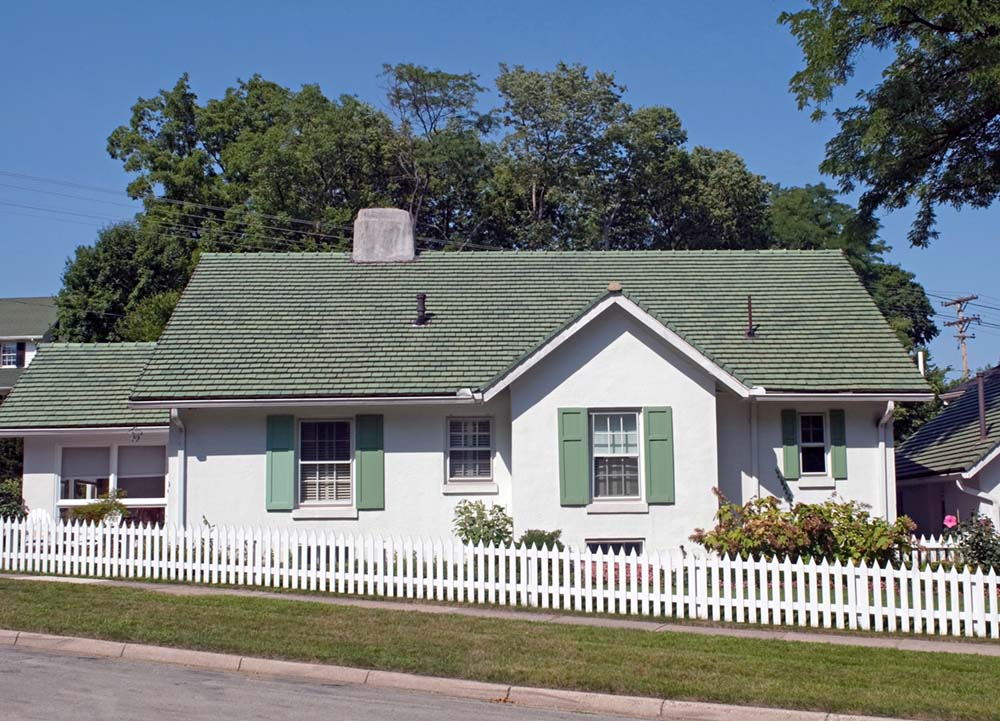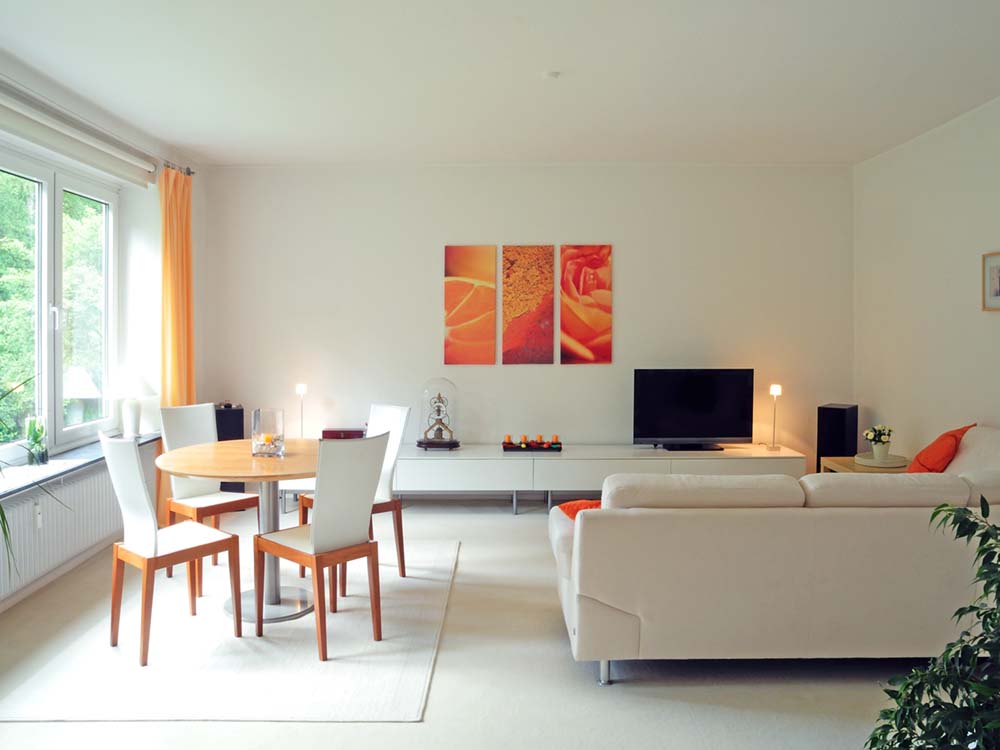January is a time to reflect. Tarek and I have been super-busy over the past several years. We started our own real estate investment business, renovated houses, added a new member to the family, and built a new life for ourselves - all in front of a television crew.
Like many other busy families with young children, we sometimes feel life moves too quickly. Unlike most families, some of the moments that passed by in a blur were documented by a TV camera. I snap a lot of photos, too, and share them on social media when I can, but even that can be a challenge with a crazy schedule.
Fortunately, our kids can look back at the show some day, see the hard work we put in, and see that they were a part of everything. There have been highs and lows, but real estate investing is not just a lifestyle, it's our family business.
How we got started
When Tarek and I first started flipping houses, we didn't have much. We were both real estate agents when the recession hit in 2008. We knew there was no way to “ride it out” and just hope things would turn around for us. We decided to take a step that was both calculated, and a leap of faith.
Tarek saw an opportunity for us to leverage our experience and become investors. We traded our Mercedes for a Honda, and swapped our $6,000-a-month mortgage for a $700-a-month rented apartment. We even got a roommate to help make paying the bills easier.
Tarek studied the market and learned as much as he could about investing. We borrowed money for our first flip, and learned a lot through trial and error. That first house took five months longer to renovate and sell than we expected. But, thankfully, it ended up turning a modest profit. We called it a success and decided to stick with it.
No one gets into flipping houses on their own without going through the school of Hard Knocks. We were no exception, and some mistakes were costly. Dealing with contractors, estimating renovation costs incorrectly, and finding hidden problems were just some of the challenges we faced early on.
We had to learn how to flip houses without losing our shirt. Those experiences tempered us and helped hone not only our skills, but our instincts.
We buy houses that others might avoid
Let's say there are two homes on the market. One is in good condition, with minimal work needed to make it salable. The other needs more than just TLC; it needs an overhaul.
Many investors would gravitate toward the first home - it means less risk. They can slap on a coat of paint, update the bathroom, and put it up for sale. On a large scale, however, that means that all the desirable properties are snapped up and flipped, while those that demand more work are left sitting on the market.
We take on the less-desirable houses. These distressed properties have often been abandoned, foreclosed upon, or have trapped the homeowners in a situation where they can't sell and can't afford to maintain the property.
Homes that are neglected, or sit empty year after year are a threat to the neighborhood's stability. Imagine a neighborhood with multiple houses that have been neglected languishing on the market. They aren't going to sell anytime soon (or perhaps ever). As they age, they become more and more run down. That affects the entire neighborhood, reducing property values, encouraging vandalism, and more.
Renovating those homes is the core of our business. We spend more time, and a lot more money, to give prospective buyers a nice, safe home. The properties cost less upfront, which is of obvious benefit.
We get to do what it takes to renovate without eating into the budget too much. For Tarek and me, these properties are more gratifying and a better value.
However, it is definitely a riskier approach.
Because we often buy properties sight-unseen, at auction, we don't know what we're walking into when get the keys. The house can be filled with garbage, inside and out. There can be horrifying smells, animal waste, or worse.
Once we opened the door to find chickens the previous occupants had left behind! I had to round them up before we could begin work on the property.
Sometimes there are deliberate hassles, too. We've seen concrete in toilets, flooring destroyed, cabinetry ripped out. Occasionally there are serious problems that propose a health risk. We've found mildew, mold, and asbestos that required professional remediation. Those were real lows.
We return great homes to the market
No matter how tiresome or difficult a reno project gets, it’s always motivating to think of the end result. We know we’re making something substantially better than it was before. That attracts the kind of buyer that is there for the long-haul, not a short-term housing solution. And, believe me, neighbors are appreciative.
One of the best parts of flipping houses is the design process - especially kitchens. We try to be responsive to the neighborhoods when selecting interior materials and landscape elements.
If a house has particular appeal, or is situated among other homes of a similar style, we are sensitive to that. We don't want to rip the charm out of a mid-century modern home and install fixtures, flooring or landscaping that doesn't suit the architectural style.
The research, the selection, the installation of beautiful materials - and the big smiles at open houses when we list the house - those are highs.
But you can't win them all
As with any business, relationship, or project there are highs and lows. We've been incredibly blessed to have wonderfully supportive fans of the show. They feel like they know us because they've seen our lives play out on camera - Tarek's life-saving surgery, the birth of Baby Brayden, the remodeling of our own home. They know we're people who work hard and have learned from our mistakes.
We get asked a ton of questions about house flipping. That's one of the reasons we started coaching and mentoring. People are genuinely excited to learn what has worked for us.
You might have heard that we cancelled the Success Path training tour through Oregon and Washington, as was reported in The Oregonian, due to a vocal group who somehow linked us to the issue of affordable housing. We are very accustomed to being on the receiving end of people's opinions. My hairstyles, my mothering, and my interior design choices in flip houses - all are discussed.
Rent affordability is not a local issue. All across America, and abroad, it is a serious topic worthy of discussion. There is no simple solution to such a complex and sensitive situation. When demand exceeds supply there is tension.
In Oregon and in many other states, there always seems to be less and less room to grow. We are aware of the importance of efforts to manage growth, like the Urban Growth Boundary, enacted to limit sprawl and protect farms and wilderness. These efforts all share the common goal of making sure existing space is used wisely.
When it's all said and done
Renovating older, distressed properties and returning them to the market actually adds inventory to ease some of that pressure. Through the Success Path program, we also teach people how to renovate and offer properties for rent as a way to create cash flow, which adds to the affordable housing inventory. The housing stock naturally becomes more desirable, and home values do catch up eventually.
That can pose a strain for some people, but many people enjoy the increased stability in the neighborhood, stronger tax base, and the additional money for public schools.
As I reflect on our last few years, I can honestly say that one of the best parts of house flipping is feeling like a partner in communities. We're proud of the work our family business has done to return good, safe homes to the market.
from Zillow Porchlight | Real Estate News, Advice and Inspiration http://www.zillow.com/blog/highs-lows-of-flipping-191071/
via Reveeo
No comments:
Post a Comment